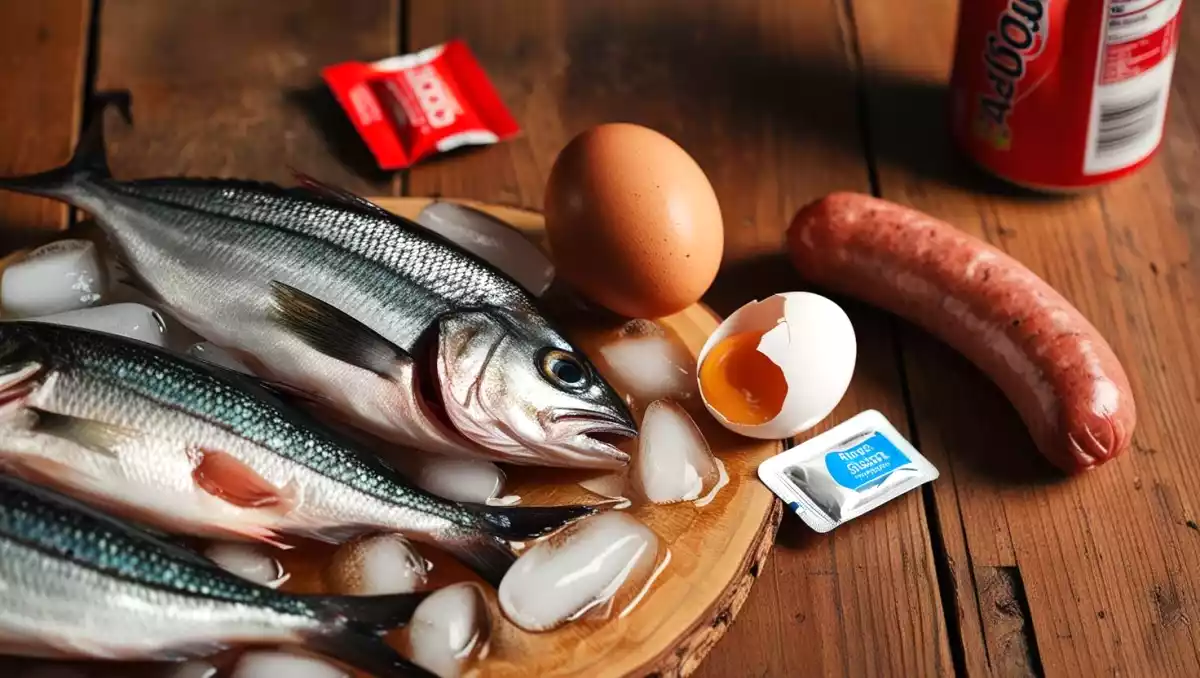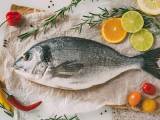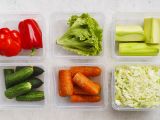Beware of these 9 foods: they can be toxic and dangerous to your health!

Food is the basis of our health and well-being. However, not all foods are our allies. Some may contain toxic substances which, instead of nourishing, harm our bodies. Knowing the most toxic foods and how to avoid them is fundamental to protecting your health and that of your family.
1. Fish with a high mercury content
Fish such as shark, swordfish and tuna can contain high levels of mercury, a toxic heavy metal that accumulates in the body and causes neurological damage, especially in pregnant women, nursing mothers and young children.
2. Processed and ultra-processed foods
Foods such as snack bars, filled cookies, soft drinks and sausages are rich in sugars, saturated fats, sodium and chemical additives, substances that, in excess, increase the risk of chronic diseases such as obesity, diabetes, heart disease and cancer.
3. Trans fats
Present in margarine, processed foods and fried foods, trans fats are a type of unsaturated fat that raises bad cholesterol (LDL) and lowers good cholesterol (HDL), increasing the risk of cardiovascular disease.
4. Artificial sweeteners
Used in diet soft drinks, light foods and zero-sugar products, some artificial sweeteners, such as aspartame and cyclamate, are suspected of causing allergies, headaches and other health problems.
5. Raw or undercooked food
Raw or undercooked meat, fish and eggs can contain bacteria such as Salmonella and Escherichia coli, which cause food poisoning with symptoms such as diarrhea, vomiting and fever.
6. Vegetables with pesticides
Fruits, vegetables and greens can contain residues of pesticides, chemical substances used in agriculture which, when in contact with the body, cause various health problems, such as allergies, neurological problems and cancer.
7. Excessive alcohol consumption
Excessive alcohol consumption damages the liver, heart, brain and other organs, as well as increasing the risk of various types of cancer.
8. Moldy food
Foods such as bread, cheese and moldy fruit can contain toxins produced by fungi, such as aflatoxin, which is highly carcinogenic.
9. Genetically modified foods
Some genetically modified foods may contain toxic or allergenic substances, the long-term effects of which are still unknown.
Watch out for plastic packaging
Some plastic packaging can release chemicals such as bisphenol A (BPA), which is a hormone disruptor and is associated with health problems such as cancer, infertility and heart disease.
How to avoid toxic foods
- Read labels: Check the ingredients and avoid foods with excess sugar, sodium, trans fats, chemical additives and artificial sweeteners.
- Prioritize fresh and natural foods: Opt for fruits, vegetables, lean meats, low-mercury fish and whole grains.
- Cook at home: Prepare your own meals, controlling the ingredients and avoiding processed and ultra-processed foods.
- Wash food thoroughly: Wash fruit and vegetables under running water and use a sodium hypochlorite solution to remove pesticides.
- Avoid raw or undercooked food: Cook meat, fish and eggs well to eliminate bacteria.
- Moderate alcohol consumption: Drink alcohol in moderation or avoid it.
- Discard moldy food: Don't eat moldy food, even if you remove the visibly spoiled part.
- Avoid genetically modified food: Opt for organic and locally produced food.
- Use safe packaging: Avoid plastic packaging and prefer glass or stainless steel.
You may also be interested in:
 Mirella Mendonça
Mirella Mendonça


Comments